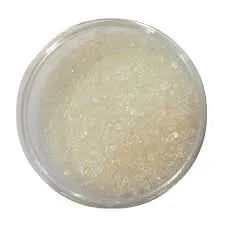Chemicals for Industrial Water Treatment Ensuring Efficiency and Safety
Water is an essential resource in various industrial processes, ranging from manufacturing to energy production. However, with the advent of industrialization, water pollution has become a pressing concern. As industries discharge pollutants and contaminants into water bodies, the need for effective water treatment solutions has surged. Chemicals play a pivotal role in ensuring that water used in industrial applications is safe, efficient, and environmentally sustainable. This article outlines the various chemicals used in industrial water treatment and their significance.
Types of Chemicals in Water Treatment
1. Coagulants and Flocculants Coagulants, such as alum (aluminum sulfate) and ferric chloride, are compounds that promote the aggregation of suspended particles in water. When these particles clump together, they form larger clusters known as flocs, making them easier to remove during filtration. Flocculants, which can be natural (like starch derivatives) or synthetic (such as polyacrylamide), further enhance this process by stabilizing the formed flocs, thus aiding in sedimentation.
2. Disinfectants The presence of pathogens in water can lead to severe health risks. Disinfectants such as chlorine, ozone, and UV radiation are employed to eliminate bacteria, viruses, and other microorganisms. Chlorine is the most widely used disinfectant due to its effectiveness and cost-efficiency. However, concerns about the formation of harmful disinfection by-products (DBPs) have led industries to explore alternatives like ozone, which breaks down into oxygen without leaving toxic residues.
3. pH Adjusters Maintaining the appropriate pH level in water is essential for effective treatment and industrial processes. Chemicals like sulfuric acid and sodium hydroxide are commonly used to adjust pH levels. Acidic or alkaline conditions can significantly affect the solubility of metals and other pollutants, impacting both treatment efficiency and equipment longevity.
4. Corrosion Inhibitors Corrosion can lead to significant equipment damage and increased maintenance costs. Chemicals such as phosphates, silicates, and organic inhibitors help form protective films on metal surfaces, reducing the rate of corrosion. Implementing corrosion inhibitors not only prolongs the life of industrial equipment but also minimizes the risk of leaks and contamination.
chemicals for industrial water treatment

5. Scaling Inhibitors Hardness and minerals in water can lead to scaling, which affects heat exchangers and other components. Scaling inhibitors, such as polyphosphates and polymers, help prevent the precipitation of scale-forming substances, maintaining the efficiency of heat transfer and reducing downtime for cleaning and maintenance.
6. Activated Carbon This versatile material is used for adsorption of organic compounds, chlorine, and other impurities. Activated carbon treatment systems can effectively remove color, odors, and certain toxic substances from water, enhancing overall water quality.
Environmental Considerations
While chemicals significantly improve the efficiency of industrial water treatment, their use must be carefully managed to prevent negative environmental impacts. Over-reliance on chemical treatments can lead to secondary pollution if not properly monitored. Thus, industries are encouraged to adopt integrated water resource management practices, which combine chemical treatments with physical and biological methods.
The shift towards sustainable chemicals and processes is also gaining traction. Biodegradable flocculants, green coagulants extracted from plants, and eco-friendly disinfectants are being developed to minimize environmental footprints.
Conclusion
Chemicals for industrial water treatment are indispensable in safeguarding water quality and ensuring operational efficiency across various sectors. With an ever-growing focus on sustainability and environmental protection, it is crucial for industries to balance the benefits of chemical treatments with potential environmental risks. By embracing innovative and eco-friendly alternatives, industries can contribute to a cleaner, healthier planet while meeting their water treatment needs efficiently.

